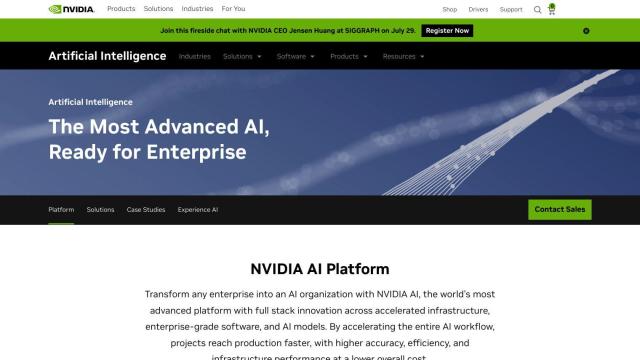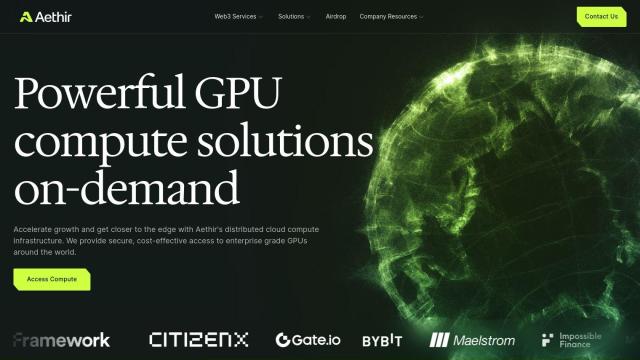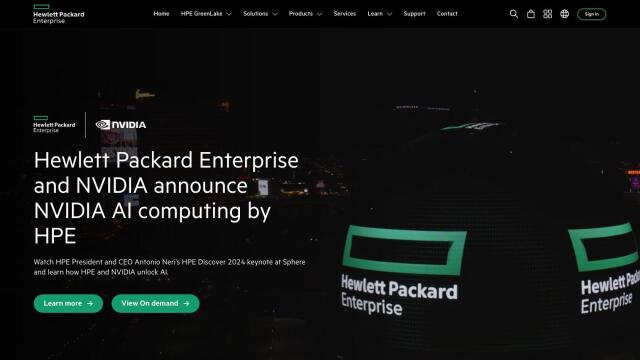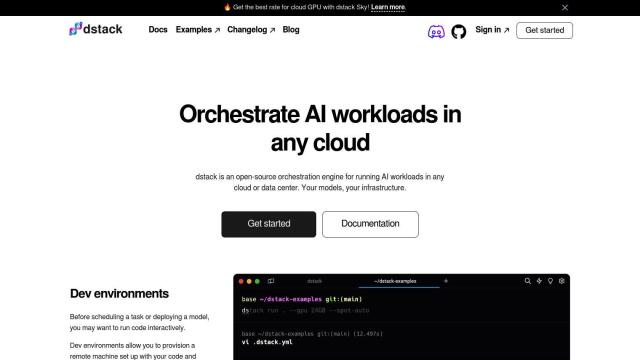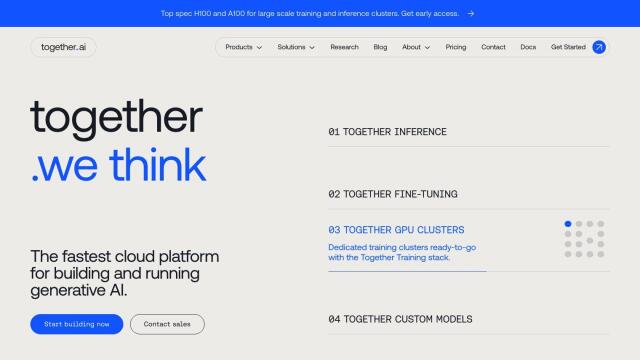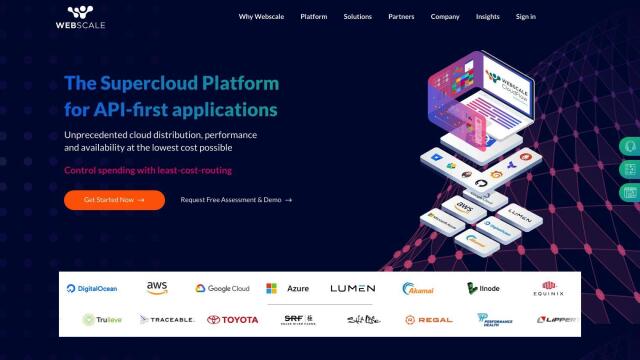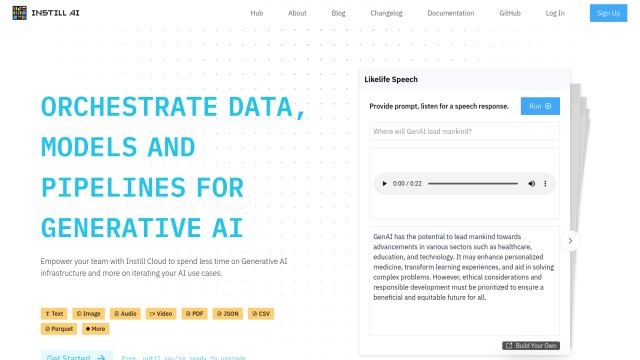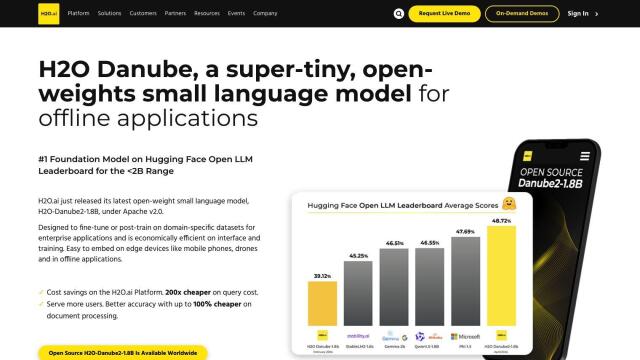Question: Is there a cloud-based AI supercomputer that can handle high-performance computing tasks without requiring infrastructure setup?

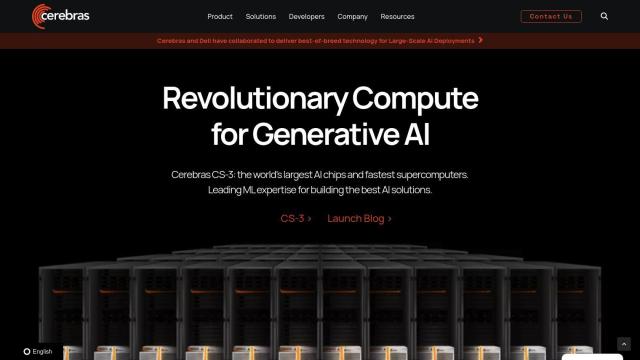
Cerebras
If you need a cloud-based AI supercomputer to get high-performance computing work done without having to set up the underlying infrastructure, Cerebras is a good choice. Its wafer-scale engine (WSE-3) processor has 900,000 AI processing cores and 44GB of on-chip memory, and it can compete with a cluster of machines. Cerebras also offers tools and services, including AI model services and cloud services for fast model training, and is a good fit for Health & Pharma, Energy, Government, Scientific Computing and Financial Services customers.
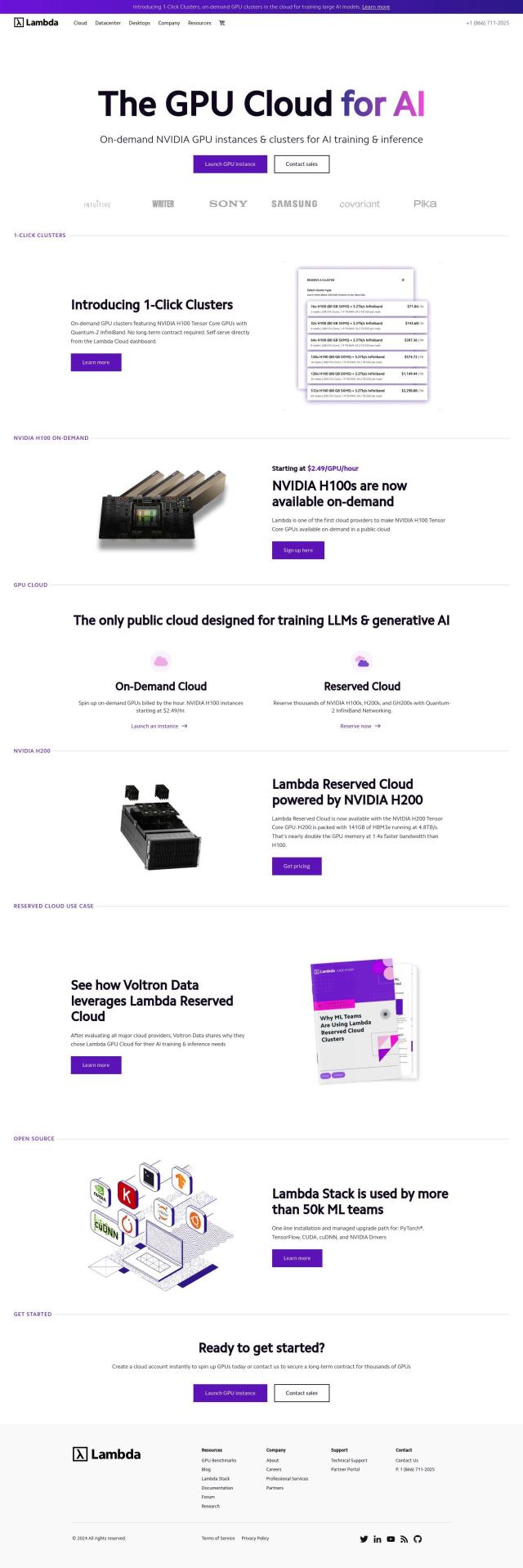
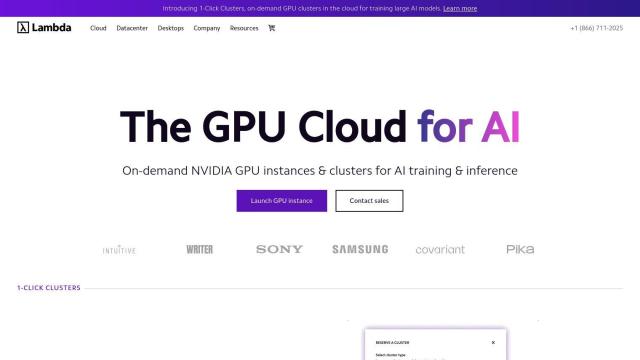
Lambda
Another good option is Lambda, which offers on-demand and reserved NVIDIA GPU instances and clusters for training and inferencing AI. The service offers a range of GPUs, including NVIDIA H100, H200 and GH200 Tensor Core GPUs, along with preconfigured ML environments, one-click Jupyter access and scalable file systems. Lambda charges by the second and offers a range of GPU configurations, so it's adaptable and economical for different projects.


Anyscale
If you need to deploy and manage AI applications at scale, Anyscale could be the best choice. Based on the open-source Ray framework, it offers features like workload scheduling, cloud flexibility, smart instance management and heterogeneous node control. Anyscale supports a broad range of AI models and offers up to 50% cost savings on spot instances, with native integrations for popular IDEs and persisted storage.


Salad
Last, Salad offers a cloud-based platform for deploying and managing AI/ML production models at scale. It offers features like a fully-managed container service, a global edge network, on-demand elasticity and multi-cloud support. Salad supports a range of GPU-intensive workloads and offers a relatively economical option with pricing starting at $0.02/hour for GTX 1650 GPUs, so it's a good option for large-scale deployments.

